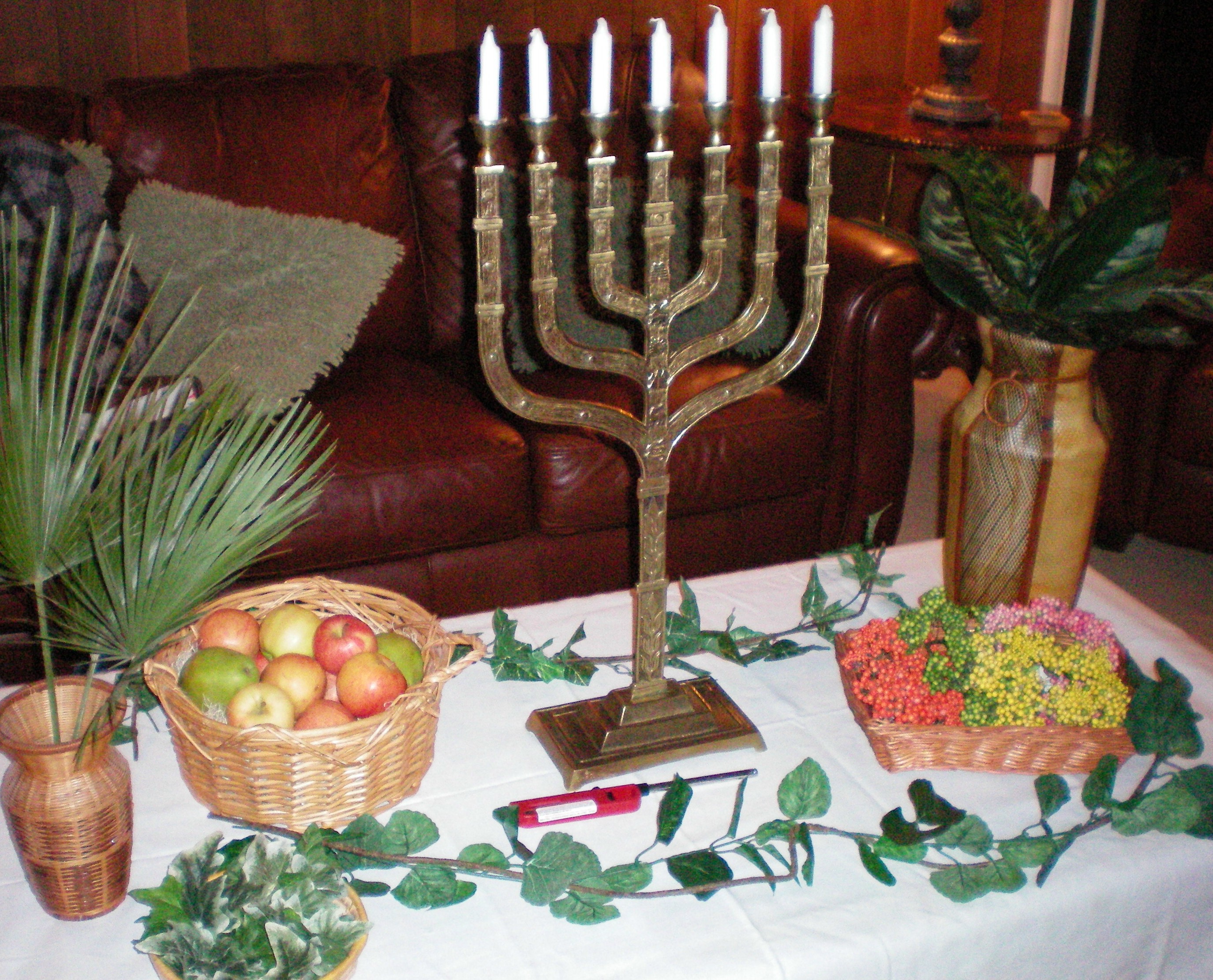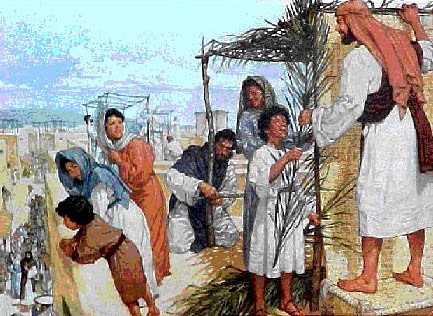
The Feast Of Tabernacles
THE Feast of Tabernacles, which Jesus was now going to attend, was one of the three great feasts of the year. At each of these feasts a great multitude assembled at Jerusalem; for the law required every man in the nation to attend them, and thousands of women and children went with their fathers, husbands, and brothers to these great festal gatherings.
The Feast of Tabernacles was a feast of rejoicing. It was held just after the gathering in of the harvest.
The whole nation came together to spend a week in praising God for the bounties of the year. God gave his promise that while the whole land was thus left almost deserted, no enemy should invade, it. This feast was called the Feast of Tabernacles, because
while holding it, the people dwelt in booths. These leafy tabernacles were made of bushes, and the branches of green trees. They were meant to remind the people of the wanderings of their forefathers in the wilderness, where for forty years they had to en-camp in the open air, with no shelter but booths, or tents of some kind; for they were continually moving from place to place, and could not build permanent houses. During this feast there was also a ceremony, which was meant to remind the people of God's goodness in bringing water from the rock in the wilderness.
All through this feast Jerusalem presented a beautiful sight. In the daytime nothing was to be seen but a forest of green booths, adorning the flat housetops, covering the sloping hillsides, and scattered along the winding valleys. At night, the whole city was lit up by the light, from the temple and its courts.
At break of day the priests blew their silver trumpets; and when the people heard the sound echoing among the hills, and through the valleys, they all joined in a glad shout of praise. Many animals were sacrificed; and all through the week ceremonies were performed to impress upon the people a sense of the majesty and goodness of God, and of his care over them as a people. Suitable passages of Scripture were read and repeated, and frequently the air was made to ring with the music of voices and instruments, sounding forth the praises of the God of heaven.
It was such a feast as this, that our Lord was going to attend.
We have already seen that he did not go up at the beginning of the feast; but after the great crowd of people had gone up, he followed on quietly with his disciples, teaching them many useful lessons by the way, and sending out seventy of their number to prepare the people for his preaching. It seems that the people at the feast were expecting to see him there, and wondered why he did not come. There was much talk about him, some saying that he was a good man, and others claiming that he deceived the people.
About the middle of the feast, Jesus went up into the temple, and began to teach with such effect that even his enemies wondered at the power and wisdom of his words. He told the people plainly that he was sent from heaven; that his doctrine was from above; that he was the Son of God; and that he spoke just what his Father had given him to speak. He said,
"I am the light of the world. He that followeth me shall not walk in darkness, but shall have the light of life." Thousands of honest people were delighted with his words of instruction and comfort. To them that believed on him, he said, "If ye continue in my word,
then are ye my disciples indeed; and ye shall know the truth, and the truth shall make you free." But many of the Jews, especially the chief priests, and the doctors of the law, were jealous because Jesus had so much influence with the people. They were also angry because he exposed their wickedness. They wanted to kill him, and sent officers to take him; but when the officers came into his presence, they were powerless, and returned, saying, "Never man spake like this man."
To these wicked leaders of the people, Jesus said,
"Ye are of your father, the devil, and the lusts of your father ye will do; he was a murderer from the beginning, and abode not in the truth, because there is no truth in him. When he speaketh a lie, he speaketh of his own; for he is a liar, and the father of it. .
. . . He that is of God heareth God's words; ye therefore hear them not, because ye are not of God."
